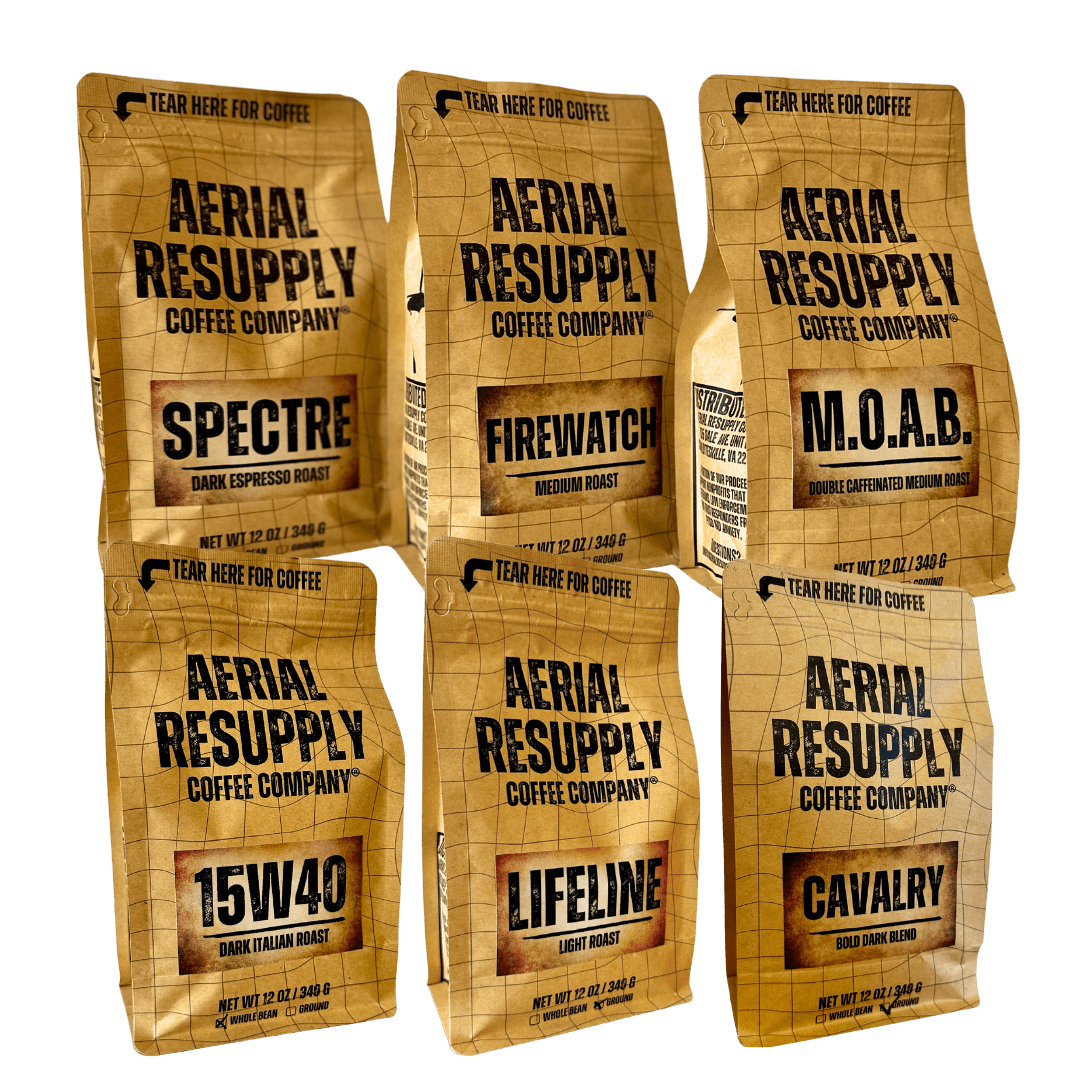Is Decaf Coffee Truly Caffeine-Free? The Truth About Caffeine in a Cup of Coffee
If you’re like me, you love coffee. You love the aroma, the flavor, the ritual, and the energy boost it gives you. But maybe you also have some concerns about caffeine. Maybe you want to cut down on your caffeine intake, or avoid it altogether for health reasons. Maybe you have trouble sleeping at night, or get jittery and anxious after drinking too much coffee. Maybe you just want to enjoy a cup of coffee in the evening without staying up all night.
That’s why you might be tempted to switch to decaf coffee. Decaf coffee sounds like the perfect solution, right? You get to enjoy the taste and benefits of coffee, without the drawbacks of caffeine. But is decaf coffee really caffeine-free? How is decaf coffee made, and how much caffeine does it actually contain? And what are the effects of decaf coffee on your health?
In this article, I’m going to answer these questions and more. I’m going to reveal the truth about caffeine in a cup of coffee, and dispel the myth of decaf coffee being caffeine-free. I’m going to help you make informed choices about your coffee consumption, and enjoy your favorite beverage without compromising your health or well-being.

The Decaffeination Process
How Decaf Coffee is Made
Decaf coffee is not a different type of coffee, but a regular coffee that has undergone a process to remove most of its caffeine. There are several methods used to decaffeinate coffee, but they all follow the same basic steps:
- The green coffee beans are soaked in water to dissolve the caffeine and other compounds.
- The water is then treated with a solvent, a chemical, or a carbon filter to extract the caffeine from the water.
- The water is then returned to the beans, which reabsorb the flavor and aroma compounds that were lost in the process.
- The beans are then dried and roasted as usual.
The most common methods of decaffeination are:
- The direct solvent method, which uses a chemical solvent such as methylene chloride or ethyl acetate to directly remove the caffeine from the beans. This method is fast and cheap, but it may leave some traces of the solvent in the coffee, which can affect the taste and quality of the coffee.
- The indirect solvent method, which uses a chemical solvent to remove the caffeine from the water that was used to soak the beans. This method is more gentle and preserves more of the flavor and aroma of the coffee, but it is also more expensive and time-consuming than the direct solvent method.
- The Swiss water process, which uses only water and a carbon filter to remove the caffeine from the water that was used to soak the beans. This method is the most natural and environmentally friendly, but it also removes more of the flavor and aroma of the coffee than the solvent methods.
- The carbon dioxide method, which uses pressurized carbon dioxide to extract the caffeine from the beans. This method is the most recent and innovative, and it preserves the most of the flavor and aroma of the coffee, but it is also the most expensive and complex.
Measuring Residual Caffeine
As you can see, decaffeinating coffee is not a simple or perfect process. It is impossible to completely remove all the caffeine from coffee, no matter what method is used. There will always be some residual caffeine left in the decaf coffee, which can vary depending on the type and quality of the coffee, the method and degree of decaffeination, and the brewing method and strength of the coffee.

The Myth of Caffeine-Free
The 2-3% Rule
So how much caffeine does decaf coffee actually contain? The answer is not as straightforward as you might think. There is no universal standard or regulation for decaf coffee, and different countries and regions have different definitions and requirements for what constitutes decaf coffee.
However, a general rule of thumb is that decaf coffee should contain no more than 2-3% of the original caffeine content of the coffee. This means that if a regular coffee has 100 mg of caffeine per cup, a decaf coffee should have no more than 2-3 mg of caffeine per cup. This is a very small amount, but it is not zero. Decaf coffee is not caffeine-free, and it can still have some effects on your body and mind.
Misconceptions About Caffeine Levels
Many people have some misconceptions about the caffeine levels in decaf coffee, and how they compare to other beverages. Here are some common myths and facts about decaf coffee and caffeine:
- Myth: Decaf coffee has no caffeine at all.
- Fact: Decaf coffee still contains a small amount of caffeine, usually 2-3 mg per cup, but it can vary depending on the type and quality of the coffee, the method and degree of decaffeination, and the brewing method and strength of the coffee.
- Myth: Decaf coffee has less caffeine than tea, chocolate, or soda.
- Fact: Decaf coffee may have less caffeine than some types of tea, chocolate, or soda, but not all. For example, a cup of black tea can have 25-48 mg of caffeine, a bar of dark chocolate can have 12-25 mg of caffeine, and a can of cola can have 34-46 mg of caffeine. These amounts are much higher than the average caffeine content of decaf coffee, which is 2-3 mg per cup. However, some herbal teas, white chocolates, and caffeine-free sodas have no caffeine at all, and are truly caffeine-free.
- Myth: Decaf coffee has no effect on your health or well-being.
- Fact: Decaf coffee still has some effect on your health and well-being, both positive and negative. Decaf coffee still contains antioxidants, polyphenols, and other beneficial compounds that can protect your cells from damage, lower your blood pressure, and reduce your risk of diabetes and heart disease. Decaf coffee also still contains some caffeine, which can stimulate your nervous system, increase your alertness, and improve your mood and cognitive performance. However, decaf coffee can also have some negative effects on your health and well-being, such as causing headaches, insomnia, anxiety, or stomach problems, especially if you are sensitive or allergic to caffeine or the chemicals used in the decaffeination process.
Caffeine Content in Decaf Coffee
One of the most important questions you might have about decaf coffee is how much caffeine it actually contains. The answer is not as simple as you might think. There is no universal standard or regulation for decaf coffee, and different countries and regions have different definitions and requirements for what constitutes decaf coffee.
However, a general rule of thumb is that decaf coffee should contain no more than 2-3% of the original caffeine content of the coffee. This means that if a regular coffee has 100 mg of caffeine per cup, a decaf coffee should have no more than 2-3 mg of caffeine per cup. This is a very small amount, but it is not zero. Decaf coffee is not caffeine-free, and it can still have some effects on your body and mind.
But even this rule of thumb is not very reliable, because the caffeine content in decaf coffee can vary widely depending on many factors. Some of these factors are:
- The type and quality of the coffee. Different types of coffee, such as arabica or robusta, have different amounts of caffeine naturally. Also, different qualities of coffee, such as organic or conventional, may have different levels of caffeine due to the growing and processing conditions.
- The method and degree of decaffeination. Different methods of decaffeination, such as the solvent methods, the Swiss water process, or the carbon dioxide method, have different efficiencies and accuracies in removing caffeine from coffee. Also, different degrees of decaffeination, such as 97%, 99%, or 99.9%, have different thresholds and margins of error in measuring the residual caffeine in coffee.
- The brewing method and strength of the coffee. Different brewing methods, such as drip, French press, or espresso, have different extraction rates and times of caffeine from coffee. Also, different strengths of coffee, such as weak, medium, or strong, have different ratios of water and coffee, which affect the concentration of caffeine in the final cup.
Therefore, the caffeine content in decaf coffee can range from 2 to 25 mg per cup, which is a significant difference. Some decaf coffees have more caffeine than others, and some have more caffeine than you might expect. For example, a cup of Starbucks Pike Place Roast Decaf has more caffeine than a can of cola, and almost as much as a cup of black tea. This means that if you drink several cups of decaf coffee a day, you might be consuming more caffeine than you realize.
The best way to know how much caffeine you are getting from your decaf coffee is to check the label or the website of the brand or type of decaf coffee you are drinking, and see if they provide any information about the caffeine content. If they don’t, you can assume that the caffeine content is somewhere between 2 and 25 mg per cup, depending on the factors mentioned above. You can also use a caffeine calculator, such as this one, to estimate the caffeine content based on the type and amount of coffee you are drinking.
Decaf Coffee and Health
Effects on Health
Decaf coffee is not just regular coffee without caffeine. It is a different product, with different effects on your health. Decaf coffee can have both positive and negative effects on your health, depending on how much you drink, how sensitive you are to caffeine, and what method of decaffeination was used.
Some of the positive effects of decaf coffee on your health are:
- Decaf coffee still contains antioxidants, polyphenols, and other beneficial compounds that can protect your cells from damage, lower your blood pressure, and reduce your risk of diabetes and heart disease. Some studies have shown that decaf coffee can have similar or even greater health benefits than regular coffee, due to the higher concentration of these compounds in decaf coffee.
- Decaf coffee can help you reduce your caffeine intake, which can have some benefits for your health, such as improving your sleep quality, reducing your anxiety and stress levels, and lowering your blood pressure and heart rate. Decaf coffee can also help you avoid caffeine withdrawal symptoms, such as headaches, fatigue, irritability, and depression, if you are trying to quit or cut down on caffeine.
- Decaf coffee can help you enjoy the taste and ritual of coffee, without the negative effects of caffeine. Decaf coffee can satisfy your coffee cravings, and provide you with a warm and comforting beverage, especially in the cold and dark winter months. Decaf coffee can also help you socialize with your friends and family, who may be regular coffee drinkers, without feeling left out or pressured to drink caffeine.
Some of the negative effects of decaf coffee on your health are:
- Decaf coffee still contains some caffeine, which can have some negative effects on your health, especially if you are sensitive or allergic to caffeine, or if you drink too much decaf coffee. Some of the negative effects of caffeine are insomnia, anxiety, nervousness, restlessness, irritability, stomach problems, heart palpitations, and increased blood pressure and heart rate. These effects can be more pronounced in decaf coffee drinkers, who may not be aware of how much caffeine they are consuming, or who may have a lower tolerance to caffeine than regular coffee drinkers.
- Decaf coffee may contain some harmful chemicals, depending on the method of decaffeination used. Some of the chemicals used in the solvent methods of decaffeination, such as methylene chloride and ethyl acetate, are known to be carcinogenic, or cancer-causing, in high doses. Although the amount of these chemicals in decaf coffee is very low, and below the legal limits, there is still some concern about their long-term effects on health. Some of the chemicals used in the Swiss water process and the carbon dioxide method, such as chlorine and carbon monoxide, are also toxic, and may contaminate the water or the environment. Therefore, it is important to choose decaf coffee that is certified organic, or that uses natural and safe methods of decaffeination, such as the Swiss water process or the carbon dioxide method.
- Decaf coffee may have some negative interactions with some medications or supplements, depending on the type and amount of caffeine in decaf coffee, and the type and dose of the medication or supplement. Some of the medications and supplements that may interact with caffeine are antidepressants, anticoagulants, antibiotics, painkillers, stimulants, and herbal remedies. These interactions can either increase or decrease the effectiveness of the medication or supplement, or cause some adverse effects, such as nausea, vomiting, diarrhea, bleeding, or seizures. Therefore, it is important to consult your doctor or pharmacist before drinking decaf coffee, if you are taking any medication or supplement, or if you have any medical condition.
Conclusion
Decaf coffee is not caffeine-free. It still contains a small amount of caffeine, which can vary depending on the type and quality of the coffee, the method and degree of decaffeination, and the brewing method and strength of the coffee. Decaf coffee can have both positive and negative effects on your health, depending on how much you drink, how sensitive you are to caffeine, and what method of decaffeination was used. Decaf coffee can also have different legal definitions and requirements, depending on where you buy it, and where it was produced.
Therefore, it is important to be aware of the truth about caffeine in a cup of coffee, and dispel the myth of decaf coffee being caffeine-free. It is also important to make informed choices about your coffee consumption, and enjoy your favorite beverage without compromising your health or well-being.
If you enjoyed this article, and want to learn more about coffee, you might want to check out some of the other articles from The Flightline Cafe on Aerial Resupply Coffee’s website. Here are some of the articles you might like:
- How to Brew the Perfect Cup of Coffee
- The History and Origins of Coffee
- The Different Types and Roasts of Coffee
- The Health Benefits and Risks of Coffee
- The Best Coffee Pairings and Recipes
You might also want to try some of the amazing roasts that Aerial Resupply Coffee offers, such as:
- 15W40, a dark roast with a bold and smoky flavor, perfect for those who like their coffee strong and intense.
- Fire Watch, a medium roast with a smooth and balanced flavor, ideal for those who like their coffee rich and satisfying.
- Lifeline, a light roast with a bright and fruity flavor, great for those who like their coffee light and refreshing.
Aerial Resupply Coffee is a veteran-owned coffee brand, that delivers high-quality coffee to your door, and supports veterans and military families. You can order online, or subscribe and save, and get your coffee delivered every month. You can also join the Aerial Resupply Coffee Club, and get access to exclusive discounts, free samples, and more.
Thank you for reading this article, and I hope you learned something new and interesting about decaf coffee and caffeine. I hope you have a great day, and enjoy your coffee, whether it’s decaf or regular. Cheers! ☕





